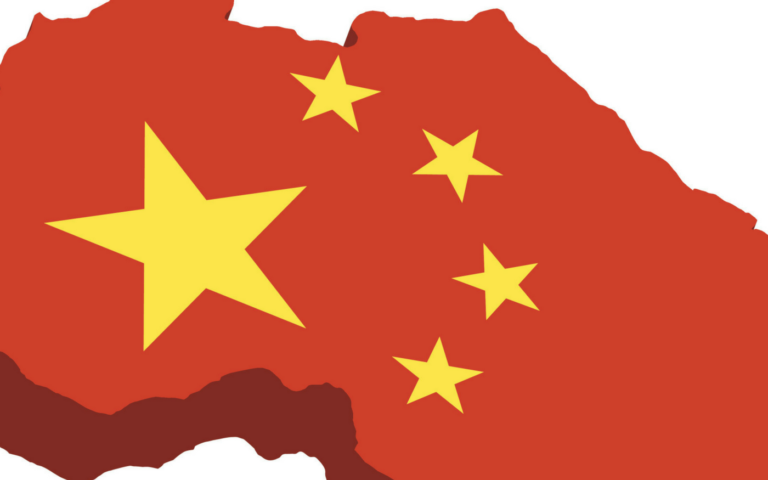
Our ancestors were well aware of the dangers of neocolonialism. During the 1974 Pan-African Congress, Black leaders from around the world affirmed the following:
To put an end to foreign domination in Africa by destroying the bases of the last colonial and racist regimes; because for as long as part of the African continent continues to suffer under the yoke of foreign domination, irresponsibility and indignity, the personality and moral integrity of every man, whether or not of African descent, will be jeopardized.
From The 9 Point Resolution of the 6th Pan-African Congress
What our ancestors could never have predicted was the rise of China as a new colonial threat. China is colonizing Africa no-time.
Thats because Europeans still maintained substantial control over their former colonies, and China was in the middle of it’s Mao-led Cultural Revolution – a genocide that would cost between 3 to 10 Million Chinese lives.
But everything changed with both the death of Mao Zedong in China and the death of overt colonialism in Africa. These events unleashed the economic appetites of China on an unguarded source of unlimited wealth: Africa.
How The Age Of Chinese Colonialism Began
After the death of the founding father of the People’s Republic of China, the nation dismantled many of the oppressive, closed door policies of the Maoist regime.
A new, economically progressive leader named Deng Xiaoping came to power and placed more emphasis on modernizing agriculture, industry, national defense, science and technology than political ideology.
This ushered in a period of unprecedented economic growth and investment in foreign nations.
In some parts of the world, investment meant buying up foreign companies. In other parts, it meant buying the nation itself through government debt. (Currently, China is the top foreign holder of U.S.Treasury debt.)
But on the African Continent, China takes a different approach: trade and aid.
How China Came To Dominate African Trade
Today, China is the largest trading partner in Africa – a surprising turn of events considering how in the 1960s trade between China and Africa was almost non-existent.
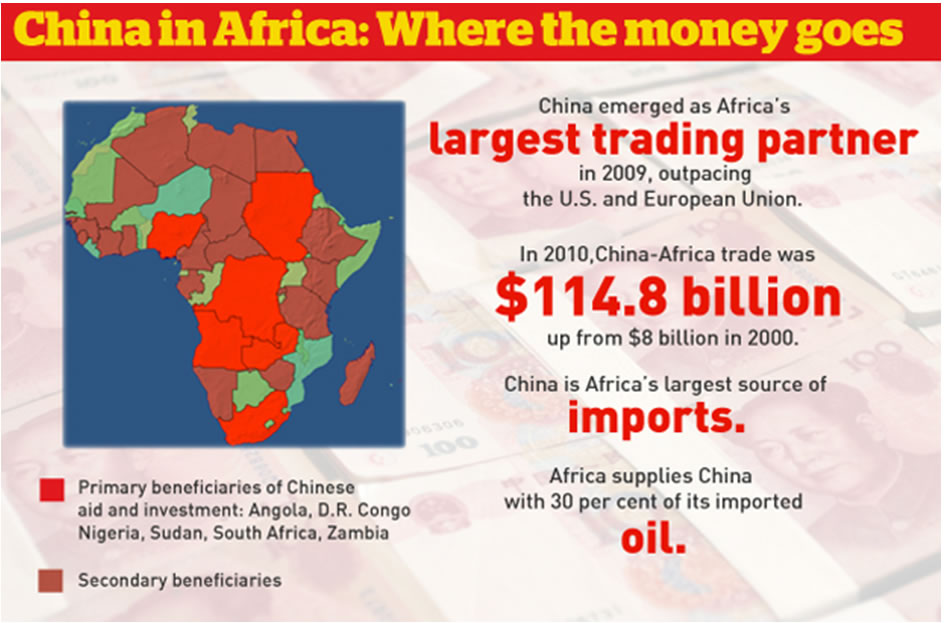
In 1980, the total Sino-African trade volume was US$1 billion.
In 1999, it was US$6.5 billion
In 2000, US$10 billion.
By 2005, the total Sino-African trade had reached US$39.7 billion before it jumped to US$55 billion in 2006, making China the second largest trading partner of Africa after the United States, which had trade worth US$91 billion with African nations.
The PRC also passed the traditional African economic partner and former colonial power France, which had trade worth US$47 billion.
In 2010, trade between Africa and China was worth US$114 billion
And in 2011, US$166.3 billion.During the year 2011, trade between Africa and China increased a staggering 33% from the previous year to US $166 billion.
This included Chinese imports from Africa equalling US $93 billion, consisting largely of mineral ores, petroleum, and agricultural products and Chinese exports to Africa totalling $93 billion, consisting largely of manufactured goods.
In the first 10 months of 2012 it was US$163.9 billion. Outlining the rapidly expanding trade between the African continent and China, trade between these two areas of the world increased further by over 22% year-over-year to US $80.5 billion during the first five months of the year 2012.
Imports from Africa were up 25.5% to $49.6 billion during these first five months of 2012 and exports of Chinese-made products, such as machinery, electrical and consumer goods and clothing/footwear increased 17.5% to reach $30.9 billion.
As of 2017, Trade between Africa and China has shot up by 19 percent every year. Chinese imports from the African continent almost doubled by an estimated 46 percent, compared to the same period a year ago reaching around $38.4 billion (Source).
However, this trade is – and always has been – imbalanced.
China takes raw materials out of Africa, turns them into finished goods in China, and brings those finished goods back to Africa to sell to the masses. This is what they call trade.
This is the same recipe for disaster that Europeans used to enslave and under-develop Africa early on.
African Aid And Debt-Trap Diplomacy
China has become not only the largest trading partner in Africa, but also one of the largest lenders. Across the Continent, China is handing out loans for railroads, stadiums, and roads to countries ignored by the west.
In 2014, China’s President Xi Jinping hailed (Then) President Robert Mugabe as a renowned African liberation leader and an “old friend” of the Chinese people as the two countries agreed to nine deals whose monetary value was never revealed.
Earlier that year, China finalized a similar multi-billion dollar railroad deal with the government of South Africa.
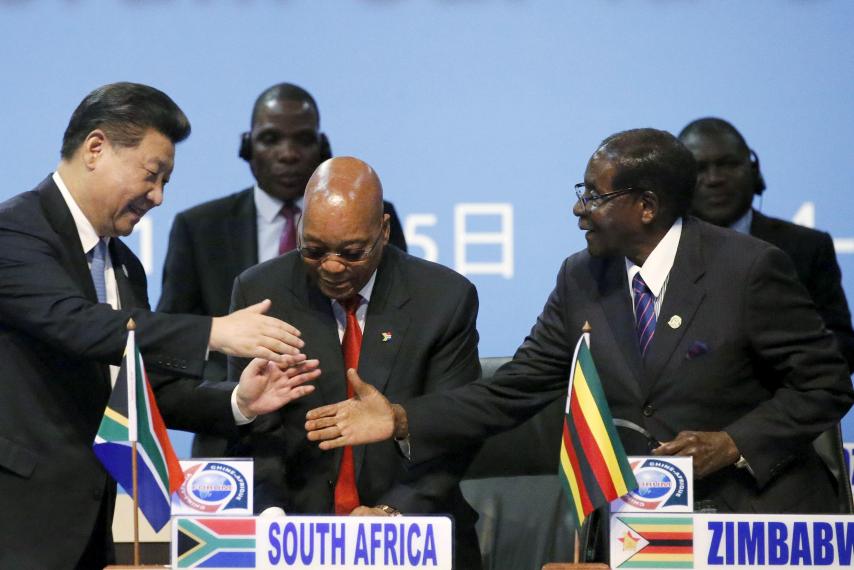
Today, formal agreements for plans to build a new railway line in East Africa with Chinese help have been signed in Kenya that will run from Mombasa to Nairobi and will extend eventually to Uganda, Rwanda, Burundi and South Sudan.
In Kenya, the line is to replace a narrow-gauge track built more than 100 years ago during British colonial rule. China is to finance 90% of the first stage, put at $3.8bn (£2.3bn), with work carried out by a Chinese firm, meaning no jobs for Africans. (Source)
Major infrastructure projects like Uganda’s Mandela National Stadium, a $1.7 billion hydropower dam in western Uganda, and the highway connecting Entebbe to Kampala have all been built by Chinese companies.
While African leaders praise China’s generosity, these loans are too good to be true.
The truth is that many of these loans are not expected to be profitable for China. When these projects fail to meet the terms of the loan, China will then be able to control and use those projects for their own interests outright.
This tactic, known as debt-trap diplomacy, has been used across the world. Take the well known example of Sri Lanka:
Post-civil war Sri Lanka went on a borrowing binge to reconstruct dilapidated infrastructure. To successive Sri Lankan governments, China was a benevolent friend, offering cheap, easy and addictive money – an attractive alternative to the strict conditionality of Western financing arrangements.
But the country soon ran into economic woes, and when the debt burden became untenable, the Sri Lankan government was forced to relinquish majority control over [Hambantota port] in 2017 in lieu of repayment.
Source
The port was handed over to Beijing on a 99-year lease, providing China with critical access to Indian Ocean sea lanes. China is doing the same thing across Africa. See this and this.
How And Why China Creates African Colonies
Before we can indict China on charges of colonialism or neocolonialism, it is important for the Pan-African to understand what makes a colony.
If economic power is centred outside of national African boundaries, then political and military power in any real sense is also centred outside.
Walter Rodney
Thanks to books like How Europe Underdeveloped Africa, we know that the purposes of a colony are:
▶︎ to extend the influence of the “mother country”
▶︎ to provide a source of raw materials for the “mother country”
▶︎ to provide a market for manufactured products of the “mother country”
▶︎ to provide a place for people to live, especially if the “mother country” is overcrowded
China is running out of natural resources, food, and water. – Source
A study by China’s Ministry of Water Resources found that approximately 55% of China’s 50,000 rivers that existed in the 1990s have disappeared. – Source
To solve these problems, China is looking to its African colonies. Once reporter who had just returned from the Horn of Africa reported Chinese agriculture executives running all over the place.
China also appears to be working to establish bases of operations for future wars.
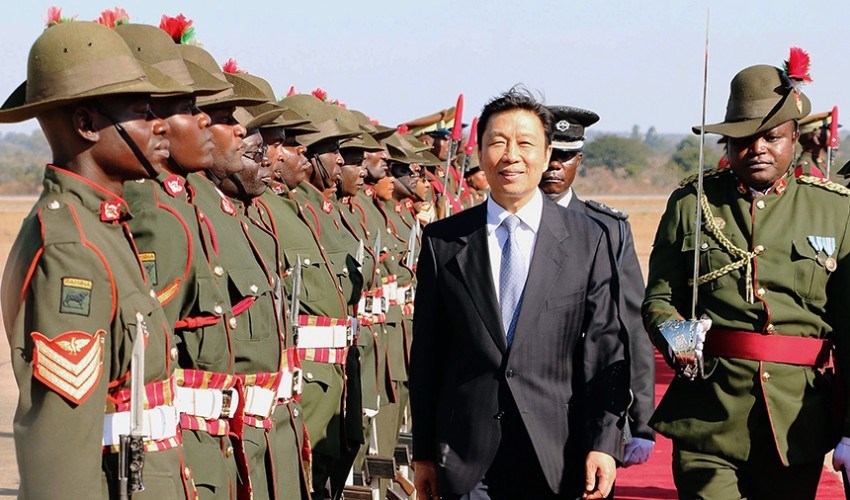
Just as the Nazis used North Africa to fight the British (and the French used Africans to fight Germans), China will likely use its African territories to fight the west if the two sides come to blows. And its likely that will be the case.
“Glory Drenched In Blood Will Pave China’s Road To Revitalization” –China’s
President Of The Marine Institute For Security
If such a war were to take place on African soil, African’s themselves will most likely be drawn into the conflict and be forced to participate.
At the very least, African nations would supply China with raw materials to fuel their conquest. Angola already pays its debts to China in oil.
Africa Has No Friends
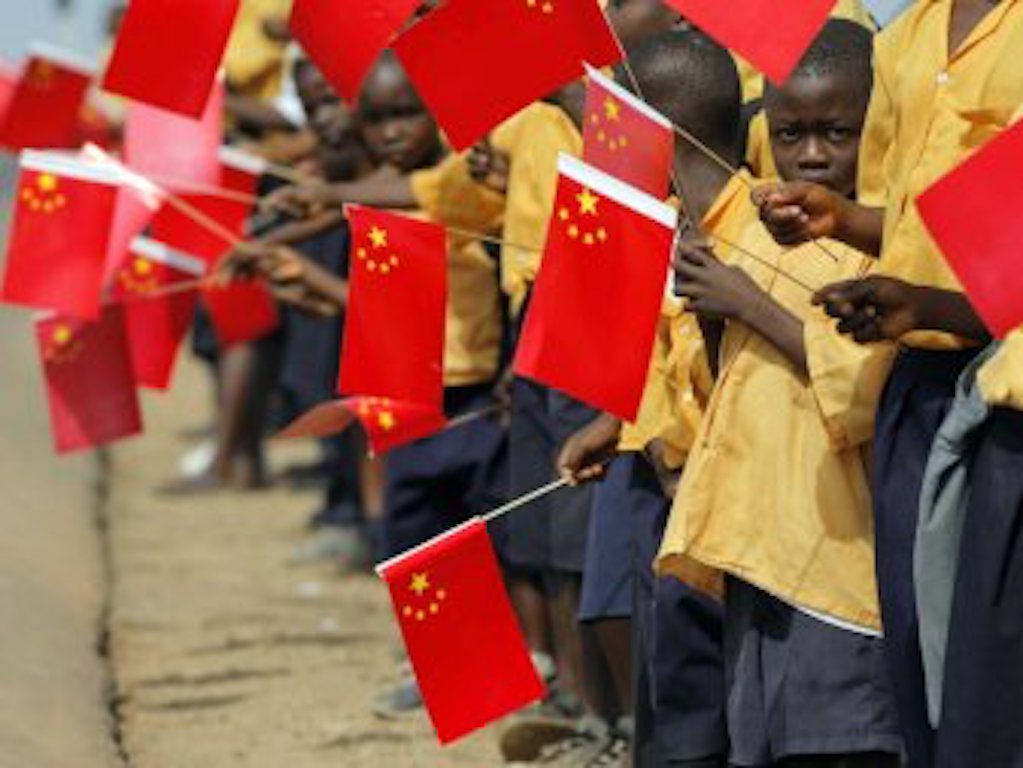
Many would argue that China’s investment in Africa benefits Africans as much as the Chinese. That China’s participation creates African jobs. Or that the Chinese are better ‘friends’ to Africa than the West.
In the words of Dr. John Henrick Clarke, Africa has no friends.
Africans are blasted by the Chinese as lazy and incompetent; “90% of Africans are thieves,” says a leading entrepreneur in Namibia (Source). In Liberia a Chinese hotel owner explains that his Chinese guests bring their own towels for fear of using one previously used by “hei ren” (“black people”) as they are known.
Fear for Chinese racism
The Chinese are extremely nationalist and just as racist as any American hood-wearing Klansman.
Millions of Chinese are leaving their homeland to participate in the new African “gold rush”. When Chinese arrive, however, they stay as far away from Africans as they possibly can.
They tend to stick together more tightly than any other ethnic group. They avoid working with Africans at the lower levels, and only negotiate or work with them at the highest level, where presidents and generals come into play.
The only exception is the increasing number of Chinese immigrants marrying African women to gain visas and continue their business interests in the country.
And when it comes to Chinese investment in infrastructure, understand this: The investment of African transportation infrastructure will allow the Chinese to relieve Africa of her wealth much faster than western nations were able to do.
Unlike Europeans, who forced Africans to use their bare hands and bare backs to mine and harvest, China brings heavy machinery into African nations to speed up the process.
Africans mistake these exports as gifts designed to make African life easier. In reality, it is to make it faster and easier for China to continue its exploitation of the host nation.
Finally, Chinese ventures create very few if any jobs for Africans. China brings workers to Africa from China to build roads, ports, dams, and railways.
Every time I pass by a Chinese construction site and see Chinese people working it just pisses me off. Why do they have to bring in their own workers when so many young Ghanaians can’t find jobs? It just doesn’t make any sense! ― Sent via Facebook from Accra
Is China’s growing presence in Africa to extend aid to the country? To offer the people of Africa an alternative to the 400 years of exploitation of the western world? To offer African economies an opportunity to participate in the global marketplace and achieve economic sovereignty?
No.
China is in Africa to develop China. While China claims to come in peace bearing gifts, we Africans should remember that clean gloves hide dirty hands. China is colonizing Africa in record time.
Source: Panafricanalliance.com
